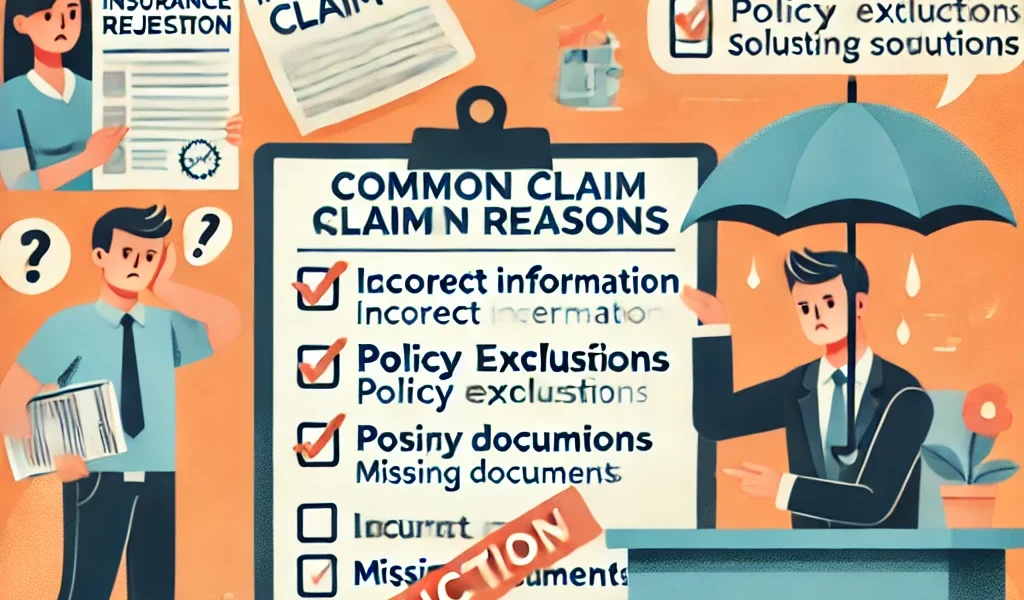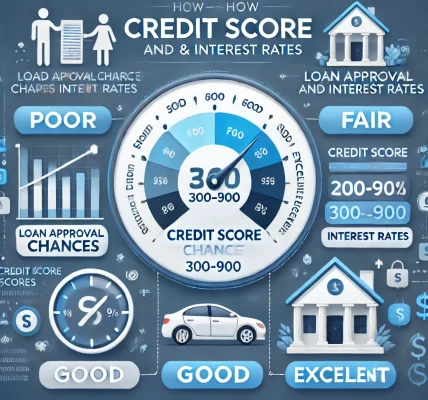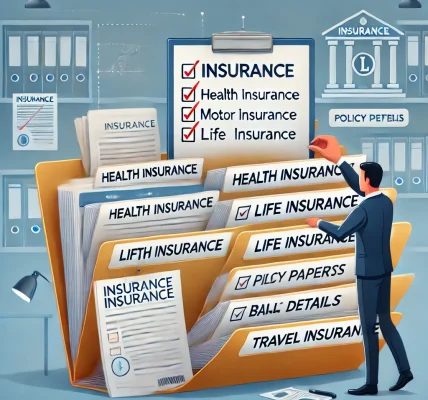Introduction
Filing an insurance claim can be a crucial step in recovering financial losses from an accident, medical emergency, property damage, or other unforeseen events. However, many policyholders face claim denials, often due to avoidable reasons. Understanding these reasons and knowing how to navigate them can help ensure a smooth claim approval process.
In this guide, we will explore the most common reasons insurance claims get rejected and provide actionable tips to prevent claim denials.
1. Incorrect or Incomplete Information in the Claim Form
Why It Happens:
One of the most common reasons for claim rejection is incorrect, incomplete, or mismatched information. Errors in personal details, policy numbers, or incident descriptions can raise red flags for insurers.
How to Avoid It:
- Double-check all entries before submitting the claim.
- Ensure the information matches your policy documents.
- If unsure, seek assistance from the insurer’s customer support team.
2. Delayed Claim Submission
Why It Happens:
Most insurance companies have a specific time frame within which claims must be filed. Missing this deadline can result in automatic rejection.
How to Avoid It:
- Read and understand your policy’s claim submission timeline.
- Notify your insurer immediately after an incident occurs.
- Keep digital and physical copies of all required documents ready for quick submission.
3. Policy Exclusions
Why It Happens:
Insurance policies often contain exclusions—specific conditions or situations that are not covered. Filing a claim for an excluded event will lead to rejection.
How to Avoid It:
- Read the terms and conditions of your policy thoroughly.
- Ask your insurance provider for clarification on what is covered and what isn’t.
- Consider upgrading your policy if you need additional coverage for specific risks.
4. Non-Disclosure of Important Information
Why It Happens:
Failing to disclose pre-existing conditions, prior claims, or other relevant information when purchasing a policy can lead to claim denials when insurers verify your history.
How to Avoid It:
- Always provide honest and accurate details when applying for insurance.
- Inform your insurer about any changes in your health, assets, or risk factors.
- Review your policy documents periodically to ensure all details are up to date.
5. Expired or Lapsed Policy
Why It Happens:
Claims are rejected if the policy is not active at the time of the incident due to missed premium payments or non-renewal.
How to Avoid It:
- Set up automatic premium payments or reminders to avoid lapses.
- Renew your policy well before the expiry date.
- Keep a record of all premium payments for reference.
6. Claim Amount Exceeding Policy Limits
Why It Happens:
Every policy has coverage limits. If the claimed amount exceeds the insured sum, the insurer may reject the excess portion or the entire claim.
How to Avoid It:
- Understand your policy limits and opt for additional coverage if necessary.
- Keep receipts, bills, and damage assessments to justify the claim amount.
- Consider buying top-up or supplementary insurance for higher coverage.
7. Lack of Supporting Documentation
Why It Happens:
Insurers require documentation such as medical reports, invoices, accident reports, or proof of loss to process a claim. Missing or inadequate documentation can lead to rejection.
How to Avoid It:
- Gather and submit all necessary documents in the prescribed format.
- Maintain digital and physical copies of important records.
- If an insurer requests additional documents, provide them promptly.
8. Filing a Claim for an Unauthorized Expense
Why It Happens:
Some claims get rejected because they involve services or treatments that were not pre-approved by the insurer (especially in health and vehicle insurance claims).
How to Avoid It:
- Check with your insurer before undergoing expensive medical treatments or repairs.
- Use network hospitals or service providers approved by your insurer.
- Follow the insurer’s claim submission guidelines strictly.
9. Fraudulent or Misleading Claims
Why It Happens:
Submitting false claims, exaggerating losses, or providing fake documents can lead to claim rejection and potential legal consequences.
How to Avoid It:
- Always submit genuine claims with accurate details.
- Avoid inflating claim amounts or misrepresenting facts.
- Cooperate with insurers if an investigation is required.
10. Failure to Follow Claim Procedures
Why It Happens:
Each insurance provider has a defined claim process. Deviating from it, such as not getting a police FIR for accidents or failing to report damages properly, can result in rejection.
How to Avoid It:
- Familiarize yourself with your insurer’s claim filing process.
- Follow the prescribed steps, including intimation, documentation, and verification.
- Keep records of all interactions with the insurance company for reference.
Conclusion
Understanding the common reasons why insurance claims get rejected can help you take proactive steps to avoid them. The key takeaways are:
- Always provide accurate and complete information.
- Submit claims within the stipulated time.
- Ensure your policy is active and covers the claimed loss.
- Keep all necessary documentation ready.
- Follow the correct procedures and guidelines set by your insurer.
By being diligent and well-informed, you can significantly improve the chances of getting your insurance claim approved without complications. If your claim is denied, review the reason carefully, seek clarification from your insurer, and, if necessary, appeal the decision with supporting evidence.




